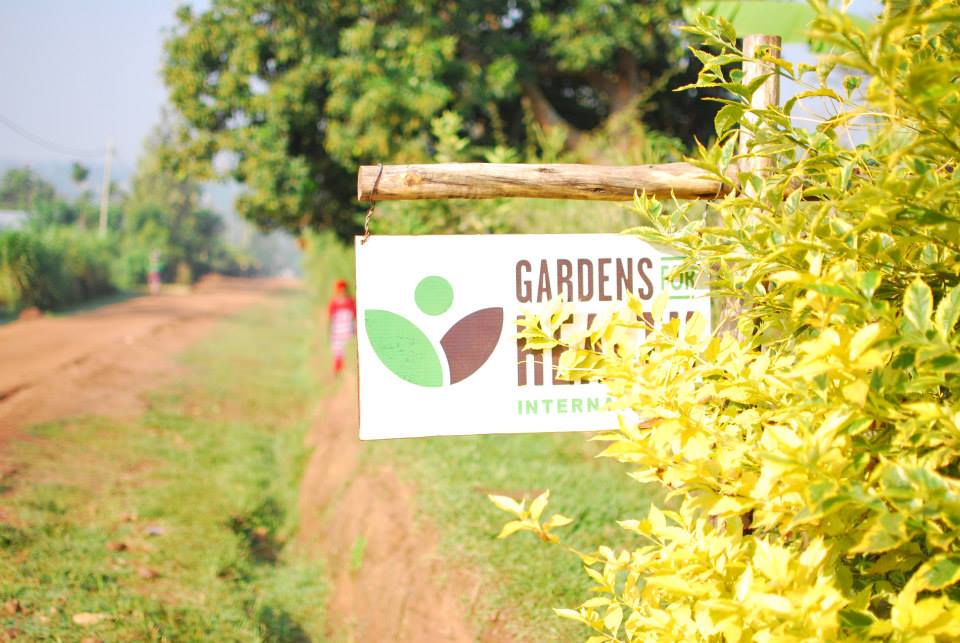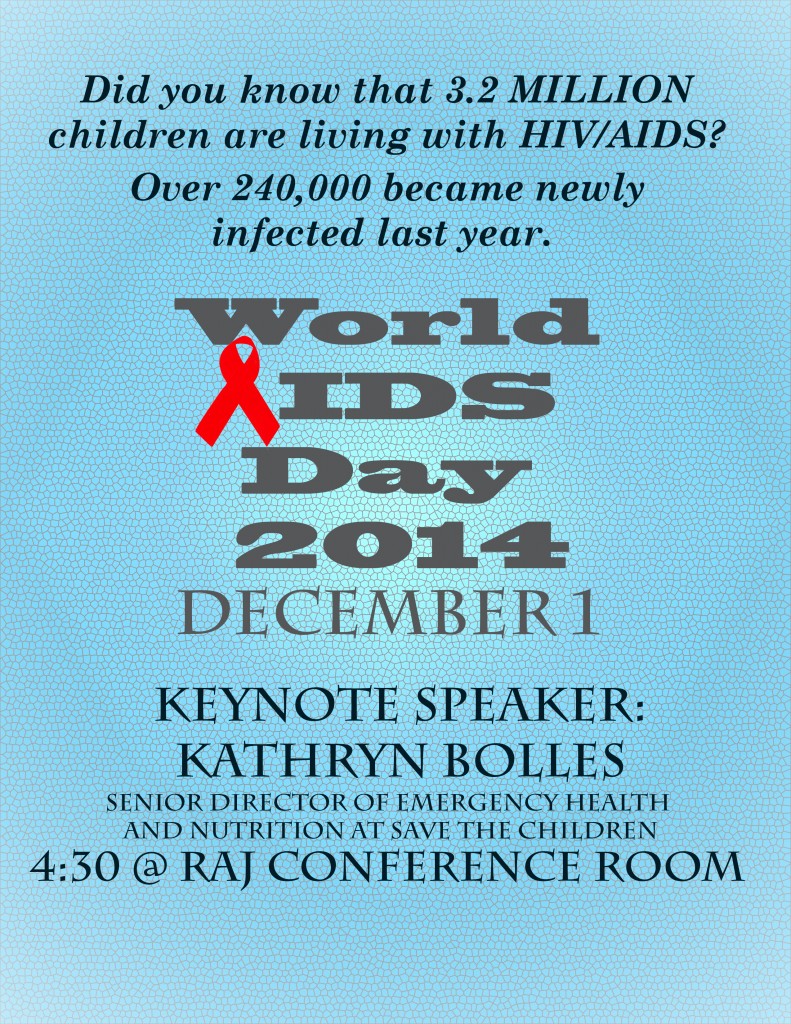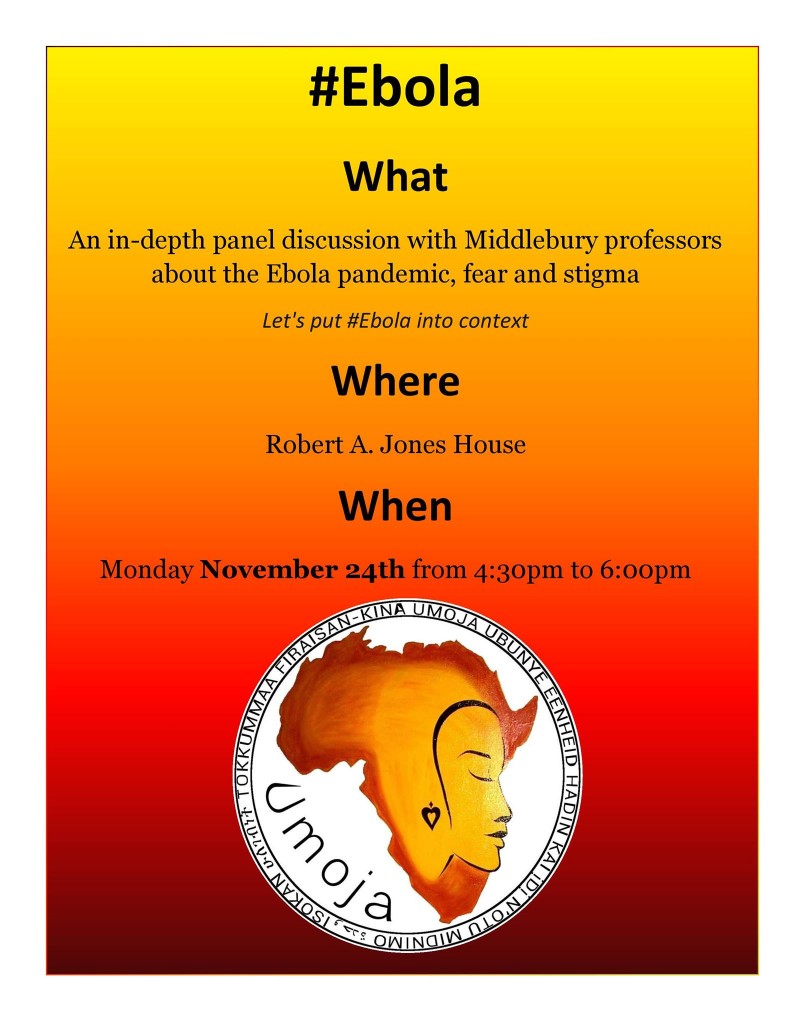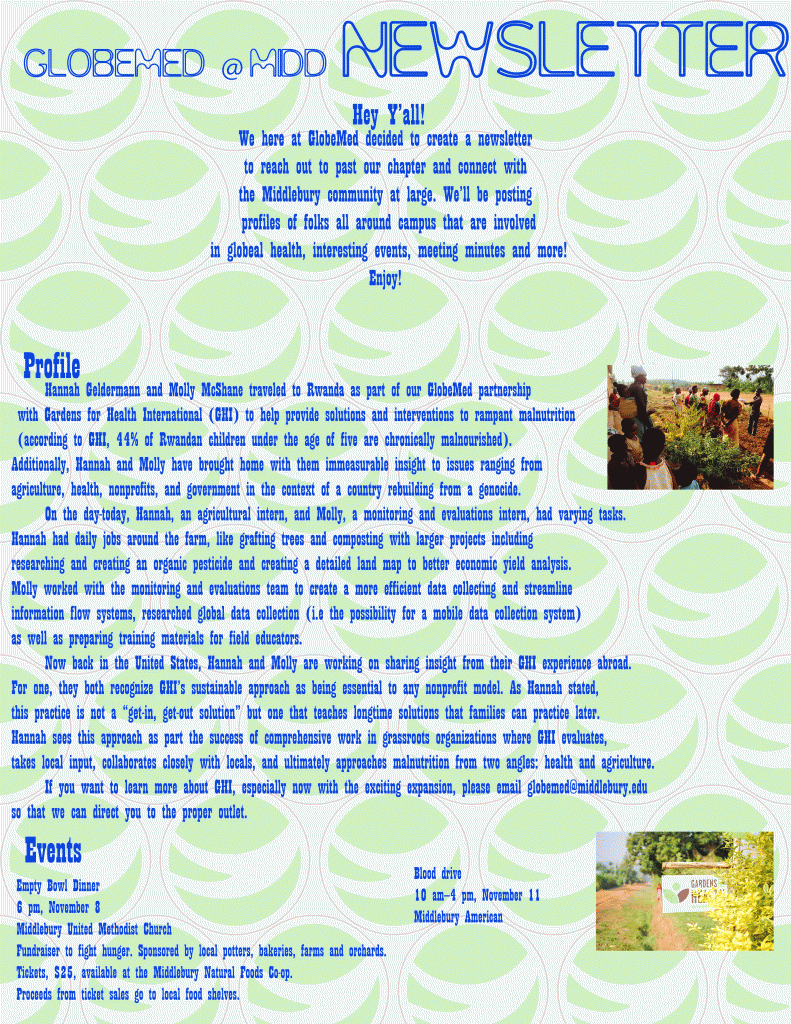‘Uncategorized’ Category
-
Holiday Giving
December 6, 2014 by Madelaine Hack
Category Uncategorized | Tags: | No Comments
-
World AIDS Day
November 29, 2014 by Madelaine Hack
Category Uncategorized | Tags: | No Comments
-
#EBOLA
November 23, 2014 by Madelaine Hack
Hey Midd! Here’s a great opportunity to learn more about such an important global health issue hosted by our friends Umoja: African Student Organization :
Category Uncategorized | Tags: | No Comments
-
Our First Newsletter!
November 3, 2014 by Madelaine Hack
Category Uncategorized | Tags: | No Comments
-
GlobeMed Glows // Thursday, January 9
January 8, 2014 by Ryan Brewster
Tomorrow night, Thursday, January 9th, we will be hosting a fundraising campaign at Two Brothers Tavern. It is our first event of J-Term and hopefully a continuation of the success we have had this year!
Category Uncategorized | Tags: | No Comments
-
Chapter Meeting // 10/13/13
October 23, 2013 by Ryan Brewster
Eliza Butler, our Director of Internal Community Building, began an exciting developments regarding our local partner, the Vermont Food Bank. Food insecurity has emerged as a critical public health issue in the state, with more than 8,600 citizens relying on the charitable food system every year. The mission of the Vermont Food Bank is to “gather and share quality food and nurture partnerships so that no one in Vermont will go hungry” (For more information, visit their website at www.vtfoodbank.org). To achieve this, the organization has formed a coalition with food retailers, manufacturers, farmers and other sources around the state to collect quality goods. The food stream is then allocated to Network Partners (Including food pantries, soup kitchens, shelters etc.), who distribute the food to the most vulnerable populations. Given our commitment to food justice in an international context, the chapter believed a partnership with the Vermont Food Network would be extremely valuable. The organization will be enlisting us as communications personnel in order to tell the stories of food stamp recipients and local producers that are a part of the Vermont Foodbank community.
It was also announced that Hannah Geldermann will be the 2013 GROW Trip Coordinator. She, along with one or two fellow chapter members, will be working on-site for a 6-8 week internship with GHI. We couldn’t have chosen a better ambassador to represent GlobeMed at Middlebury!
Investments in infrastructure and administrative growth – otherwise known as overhead – are seen as necessary expenditures to sustain long-term stability. However, unlike the for-profit sector, non-profits are expected to cut any costs that don’t directly enhance their service. Dissecting the “Overhead myth” was the topic for this week’s GlobalHealthU. It essentially calls into question the double standard between corporations and NGOs, arguing instead that spending on communications, monitoring and evaluations, salaries, fundraising and other internal development needs are inseparable for the intervention itself. In other words, it should be the outcomes that measure performance of an organization, not how trim their budget is. A provocative TED talk delivered by Dan Pallotta sparked some really engaging conversation:
http://www.ted.com/talks/dan_pallotta_the_way_we_think_about_charity_is_dead_wrong.html
The partnership between GlobeMed at Middlebury and Gardens for Health International has chosen to acknowledge capacity building needs by designing their annual project around an unrestricted grant. Born out of this past summer’s internships with GHI, this will allow the organization to allocate funding to support their operational costs as they continue to expand and effectively address chronic malnutrition in Rwanda.
Category Uncategorized | Tags: | No Comments
-
Chapter Meeting // 10/6/13
October 23, 2013 by Ryan Brewster
A startling fact opened up this week’s meeting – The average weekly income of families enrolled in GHI’s health center program is $3.77, with 37% of these families earning less than $2.00 per week. GHI works within these financial constraints, but hopes to ultimately shatter this cycle of poverty through community-driven self-agency.
Lindsay and Olivia held their first biweekly Skype meeting with GHI. For the duration of the academic year, our partner liasions will be Eve, the US Operations Coordinator, and Christiana, who is a Princeton in Africa Fellow stationed on-site. They reported the impressive progress made in their ongoing expansion four new health centers in the Musanze District. The official enrollment was greeted with unprecedented interest levels amongst the communities. Accordingly, each center will be training a full class of forty families. Here’s an excerpt from GHI’s blog explaining the decisions to scale up into the district:
We consider Musanze to be an ideal fit for GHI’s mission based on a number of factors, particularly its high level of demonstrated need and a local leadership committed to a productive partnership. With a chronic malnutrition rate of nearly 63% (compared to the national average of 44%), Musanze represents both a challenge and a tremendous opportunity for the type of change to which GHI has long been committed. District leadership and those in charge of our partnered health centers are well aware of the problems faced by their community—and have demonstrated a willingness and desire to support our efforts.
To get a glimpse at GHI’s health center program, we watched a video detailing a family’s trajectory towards agricultural self-sufficiency. Innocent, one of GHI’s field educators, was shown working with a family to implement a home garden and to address their individualized needs. Please feel free to enjoy the short film here:
Our GlobalHealthU discussion for this week looked at the recent controversies surrounding the Affordable Care Act, especially as it pertains to the government’s role in securing either health equity or healthy citizens. Aside from political and legislative interventions, it was suggested that collaborations with the private industry are indispensable for a strong public health infrastructure. For instance, the high accessibility to fats, sugars and salts is engendering an unprecedented rise in diabetes and cardiovascular diseases. Without effectively checking the market-driven interests of food manufacturers, these alarming trends will continue in spite of policymaking initiatives. Community-centered health care must be coupled with work at the state and national level. The decentralized nature of Rwanda’s health care system is being recognized as a model program for developing and developed countries alike. As part of their Mutuelles de santé, the country provides universal health insurance and enlists 45,000 community health workers throughout the country to provide psychosocial support and primary care services. The outcomes speak for themselves – Maternal mortality has decreased by 60%, life expectancy has doubled, and the prevalence of once widespread diseases (such as HIV/AIDS, tuberculosis and malaria) is exponentially declining. Perhaps the United States can take a lesson from resource-constrained countries like Rwanda, who are able to prioritize both equity and affordability.
Category Uncategorized | Tags: | No Comments
-
Chapter Meeting // 9/29/13
October 23, 2013 by Ryan Brewster
GlobeMed at Middlebury held its second meeting of the semester on Sunday, September 29th. Having solidified our now 40+-person membership, we are thrilled to begin a productive year working towards global health equity on campus and with our partner, Gardens for Health International.
The chapter has introduced a new model for member participation, breaking down into teams focused on campaigns, speakers and grants. Our campaign directors, Cate Stanton and Margaret Reed, are coordinating a promising year for fundraising events. Amongst the many traditional and new campaigns in store include the Ski Race, a 5k, an acapella jamboree, and a Holiday Giving campaign.
To begin the night’s GlobalHealthU, members attempted to define poverty and the elements of what makes somebody poor. Responses touched on the manifold dimensions of poverty, from the economic to the political to the personal. The discussion then opened up to the following questions:
How does GHI approach poverty and development? How would you address poverty?
Where do we want to be in 2030? What do we want accomplished? How will poverty be different?
How do we want to get there? Is GHI’s model the only model we should be following? Are there other models that complement GHI’s mission?
Sustainability was identified as the most critical dimension to contemporary international aid. In supporting the beneficiaries to developing their own solutions, global health initiatives can ensure a long-lasting, targeted and deep impact in the community. Moreover, community empowerment lends itself to partnerships with like-minded organizations, thus creating a network that approaches their respective issues from a multidimensional purview. For GHI, sustainable practice is embedded in their Turi Kumwe, or We Are Together, philosophy. Local leaders, trained as agricultural field agents, are dispatched into communities to sensitize families to GHI’s agricultural training and health-related educational curriculum. In turn, mother mothers are equipped with the self-sufficiency to life their households out of malnourishment. Out of this integrated, rather than parallel, system have emerged many strategic partnerships with the Rwandan government, UNICEF, the European Union and other sectors involved in food security policy.
Category Uncategorized | Tags: | No Comments
-
Staff Meeting 05/12/13
May 12, 2013 by Anoushka Sinha
Tonight was our last meeting of this academic year, and we certainly had a strong finish: our finals-grams campaign was an amazing success, and we reached our $20k goal!!! We spent most of the meeting reflecting on the achievements and challenges we faced over the course of this year.
We began with GHU: the overall theme for this year was Health and Human Rights. We began by asking why human rights exist, exploring this idea from the perspectives of a philosopher, a historian, and a politician. Then we asked who has more rights than others, comparing the child to the adult and the prisoner to the citizen. Finally we asked how human rights are influenced by the environment, comparing an urban to a rural setting. Then we ended GHU by exploring health and human rights in action, with presentations from GlobeMed members who have actively explored the connections we discussed in the field.
We then took a critical look at our work this year and made a list of our successes and areas where there is room for improvement. Here’s a sample of what we discussed:
The good:
- We fundraised really well
- GHU was great, especially hearing about chapter members’ projects
- Enthusiasm in meetings and campaigns
- Good pace of meetings
- Diversity of membership
The not so good:
- Attendance at meetings and special events -> perhaps offer a month-at-a-glance preview of talks and events so people have them on their radar?
- Level of transparency with GHI -> work to cement our partnership and change our Memorandum of Understanding such that GHI Exec Director Jessie Cronan could come up once a semester to give presentations; forward emails from GHI to the whole chapter
- Use of blog -> encourage chapter members to take turns posting on the blog and include reflections, activities, projects, etc. that might be of interest
- Social bonding -> form a local partnership, perhaps with VT Food Bank, and do community service together (gleaning), even with other student orgs
- Campaign teams -> better define individual roles
Finally, we presented an overall look at how this year compared to last year:
2012 -> 2013, by the numbers:
- 51 -> 73 members
- 3 -> 9 guest lectures
- $15,000 raised to expand GHI’s work to 1 new health center -> $20,000 to maintain that health center for one fiscal year
- 3 GROW interns at GHI in Rwanda -> 2 GROW interns at GHI in Rwanda + 3 interns at GHI in Boston
- 6 -> 9 GlobeMed members attend Summit
We’ve grown exponentially over the few years since GlobeMed at Midd was started my freshman year, and I graduate now so proud of the progress we have made and fully confident that our chapter will continue to grow and promote global health equity in tangible and sustainable ways. I will always remember my involvement with GlobeMed and its truly inspiring membership as one of the most meaningful experiences of my college career.
Love,
Anoushka
Category Uncategorized | Tags: | No Comments
-
Staff Meeting 05/05/13
May 5, 2013 by Anoushka Sinha
We began tonight’s meeting with a financial breakdown of the strides we have made in terms of 2012-13 fundraising:
Fall:
- Rollover from last year: $344.15
- A capella concert: $465.53
- Two Brothers bar night: $1,382.25
- Holiday giving campaign: $8,403
- WWW Foundation: $2,500
- Long Trail: $200
- Book store contest: $500
J-term:
- MCAB dinner: $137.05
- Private donation: $200
Spring:
- Kaplan raffle: $926
- Babysitting night: $559
- 5K fun run: $4,738.74
- Private donation: $100
Total: $20,456.17 – $790 (T-shirt loan) = $19,661
This means we have only $338 left to fund to reach our goal of $20,000! It also means that we are the third biggest fundraising college of all the GlobeMed chapters despite being the smallest college chapter BY FAR. We should be incredibly proud of the good work we’ve done this year and put our best effort into the final push to raise the remaining funds.
For GlobalHeathU, Lindsay and Caroline gave an inspiring presentation on their J-term trip to Guatemala to volunteer at Common Hope for the month. The notes for their talk can be found here: Guatemala 2013.
Category Uncategorized | Tags: | No Comments




